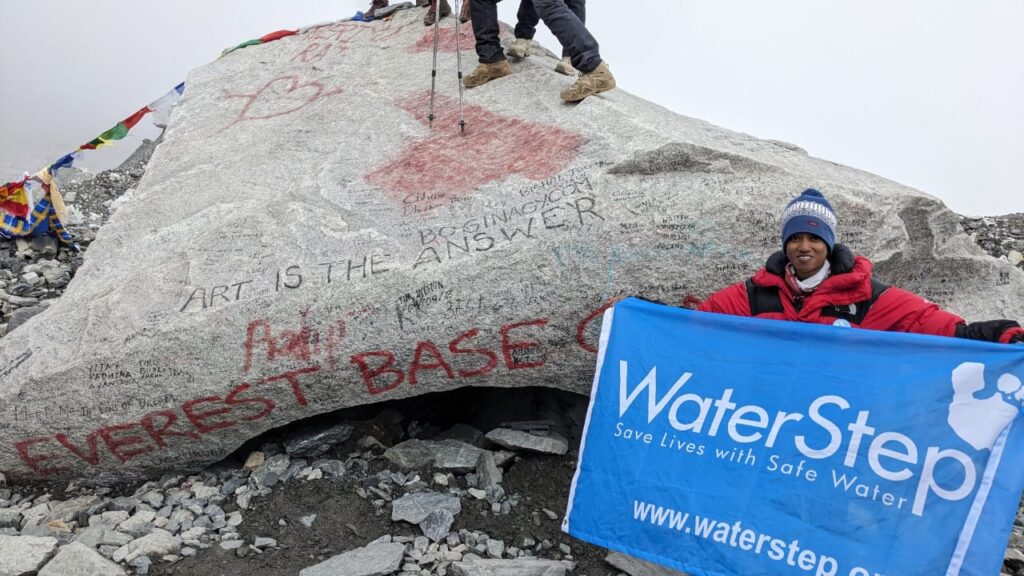Written by: Pam Platt, WaterStep Communications Specialist
In a Myrtle Street conference room, in a warehouse-like building in Old Louisville that is the world headquarters of WaterStep, the ceilings seem almost high enough to accommodate the achievements and goals of two young women who, despite so much in common, are meeting for the first time.
They belong to an exclusive, if unofficial, club defined by shared passions of climbing mountains, the highest in the world, and advocating for safe water, a precious, too-scarce commodity in too many parts of that same world.
They are taking them on, these challenges of mountains and safe water, one step at a time. With preparation and purpose, both are achievable … have been and will be. Their young lives already are testament to that.
Lucy Westlake, just turned 20, sat at the conference table. She would be joined, virtually, in the room when Hasvi Muriki, 15, signed in from her home in Hyderabad, the capital of India’s southern state of Telangana.
Lucy was happy to be speaking with another young woman who also is a mountaineer. She doesn’t see that many people like her on the peaks she climbs, and she said it has been a dream of hers to see more. As for Hasvi, her eyes lit up when she spotted Lucy on the screen, different time zones but same world, evidence of the thrill she said it was to meet the mountaineer who, by example, has inspired her in her twin journeys, too.

Even a short chat with Lucy and Hasvi reveals that both young women embody the work and the messages essential to WaterStep’s mission to bring safe water to more people in the world:
Hope and empowerment are not just byproducts of the work, but are the point of it, too. Along with a gratitude for what the developing world has that fuels their efforts to bring safe water, and water security, to more of the world’s people who don’t have either. Until they do.
A season of gifts and thankfulness invites us to tap into Lucy’s and Hasvi’s young, bold, and giving spirits.
We learn that Lucy was visiting family in Nashville and Louisville after a summer summit attempt of K2, and was in between semesters at the University of Southern California. She also had just returned from her presentation at the 2023 University of North Carolina Water and Health Conference, which attracted people from 60 countries. On behalf of WaterStep, she presented the award-winning BleachMaker at the conference’s Technology Showcase. Her growing presence in water issues builds upon an earned, international reputation as the youngest woman to summit Mount Everest and a world record as the youngest female to summit the highest mountain in each of the 50 U.S. states. For stories WaterStep has written about Lucy, go to waterstep.org, and visit her website at lucyclimbs.com for more information about her climbs.
We learn that Hasvi was fresh from an ambitious, Nepalese mountain trek that took her to Island Peak, Mount Everest Base Camp, Mount Pumori Base Camp and Kala Patthar. The high school student with special studies in math and economics even took textbooks and homework along with her on the trek. That sort of discipline is very much in line with Hasvi’s everyday life, which starts with two hours of cardio work before school and two hours of weight work after school, her prep work for even more ambitious climbs. She and her team at home also have learned and worked the BleachMaker and are planning to introduce it to an area village this month, she said. Visit hasvimuriki.com for more information about Hasvi and her pursuits.

Lorem ipsum dolor sit amet, consectetur adipiscing elit. Ut elit tellus, luctus nec ullamcorper mattis, pulvinar dapibus leo.
Both carry the WaterStep banners with them in fact and in spirit. Their climbs are about more than themselves and personal ambitions, have to be, because they have seen the costs of unsafe water and know the benefits of safe water to communities.
The reason for the banners they carry ….
Lucy: Her own empowerment as an advocate came when she was 12, and wanted to help her Ugandan pen pal to bring safe water to her village. Lucy found WaterStep and its resilient safe-water technology and took it to Africa. She has never turned back. Safe water, and its delivery, will be her future, as she plans a career in public policy and water issues. “Water should be a human right for everyone,” she says. And if women and children who spend half their time, in much of the world, fetching water can be freed up by access to safe water, society would be different and the world would shift in a good way, she said.
Hasvi: She wants to close the gaps she has seen at villages on mountains she has climbed, and in rural India, for people who don’t have access to clean and safe water. She said she has seen suffering in people who have chronic illnesses from unsafe water. She thought about starting her own NGO, she said, and when she did an internet search found WaterStep … and she found Lucy, a mountaineer she admires, on WaterStep’s page. “I thought this is really cool, and I wanted to know more,” she said. Mountaineering has taught her the value of persistence in her early safe water efforts.
Their three messages to other young women …
Lucy: 1. To find something you are really passionate about. 2. To ask what are the needs of others around you, people you care about, and using your passion, gifts and talents in a way that betters other people’s lives. 3. To have thankfulness, to keep everything in perspective. “Not all of us have the same resources, like water coming out of a spout, and how much joy that can bring,” she said.
Hasvi: 1. Never give up on your dreams or what you love. 2. The comeback is greater than the setback. “I have faced this in real life … I couldn’t summit, and I was depressed, crying, frustrated. I had two options: get back up and start the grueling process again, or keep crying,” she said. “I summited the same mountain after six months.” 3. Have gratitude for the smallest things in life because you never know who might not have it or might wish to have it.
As they prepared to end the meeting and the call, each expressed appreciation for the time together, how they might try to do a hike, or climb a mountain, or work on a water project together.
Neither the world, nor the ceiling, seemed enough to contain Lucy and Hasvi.




